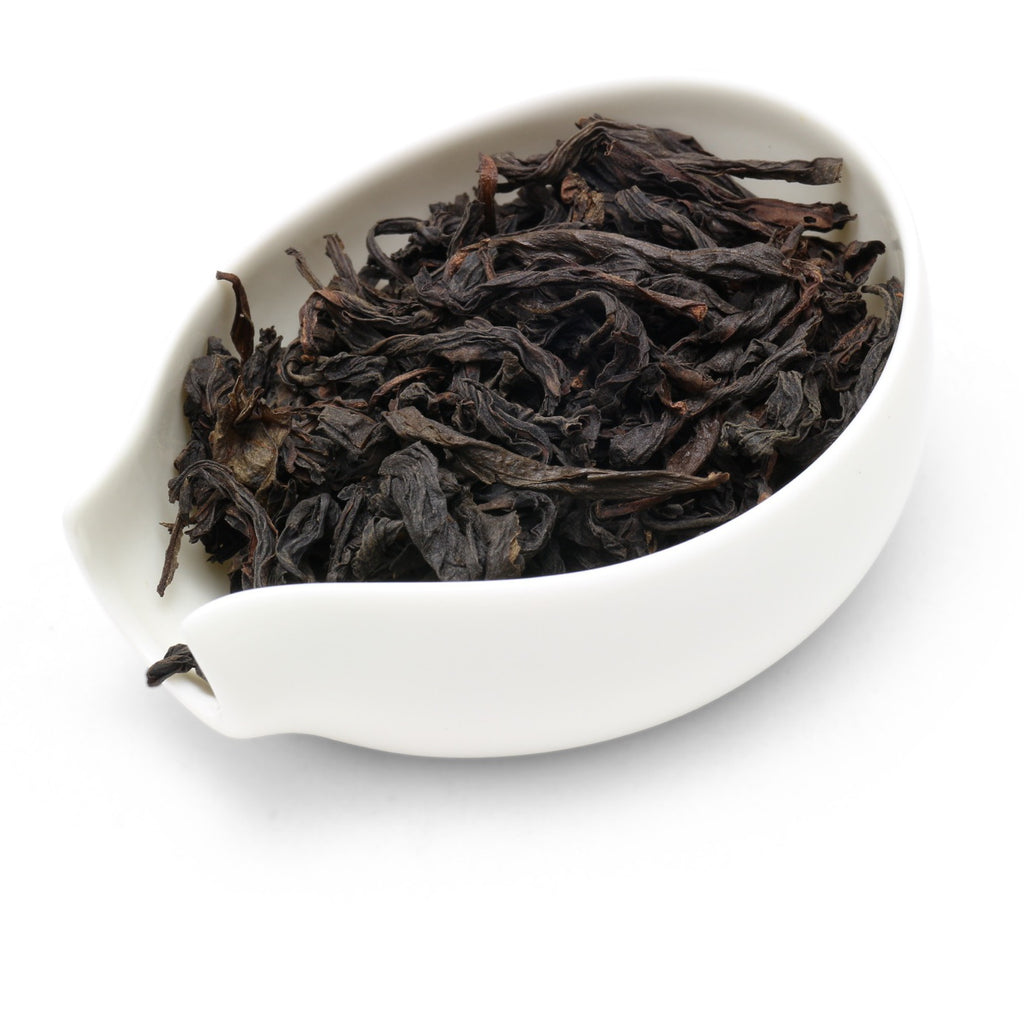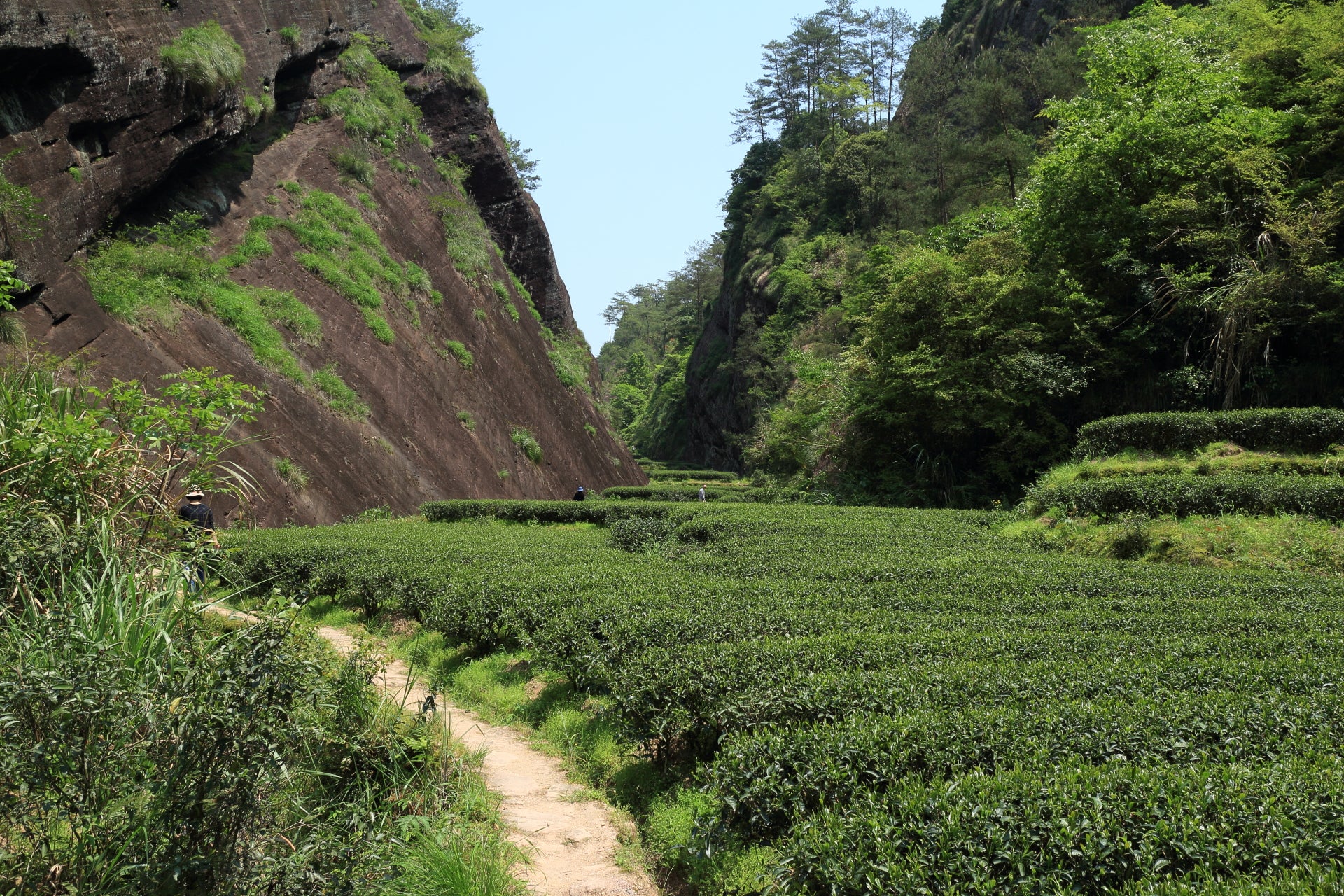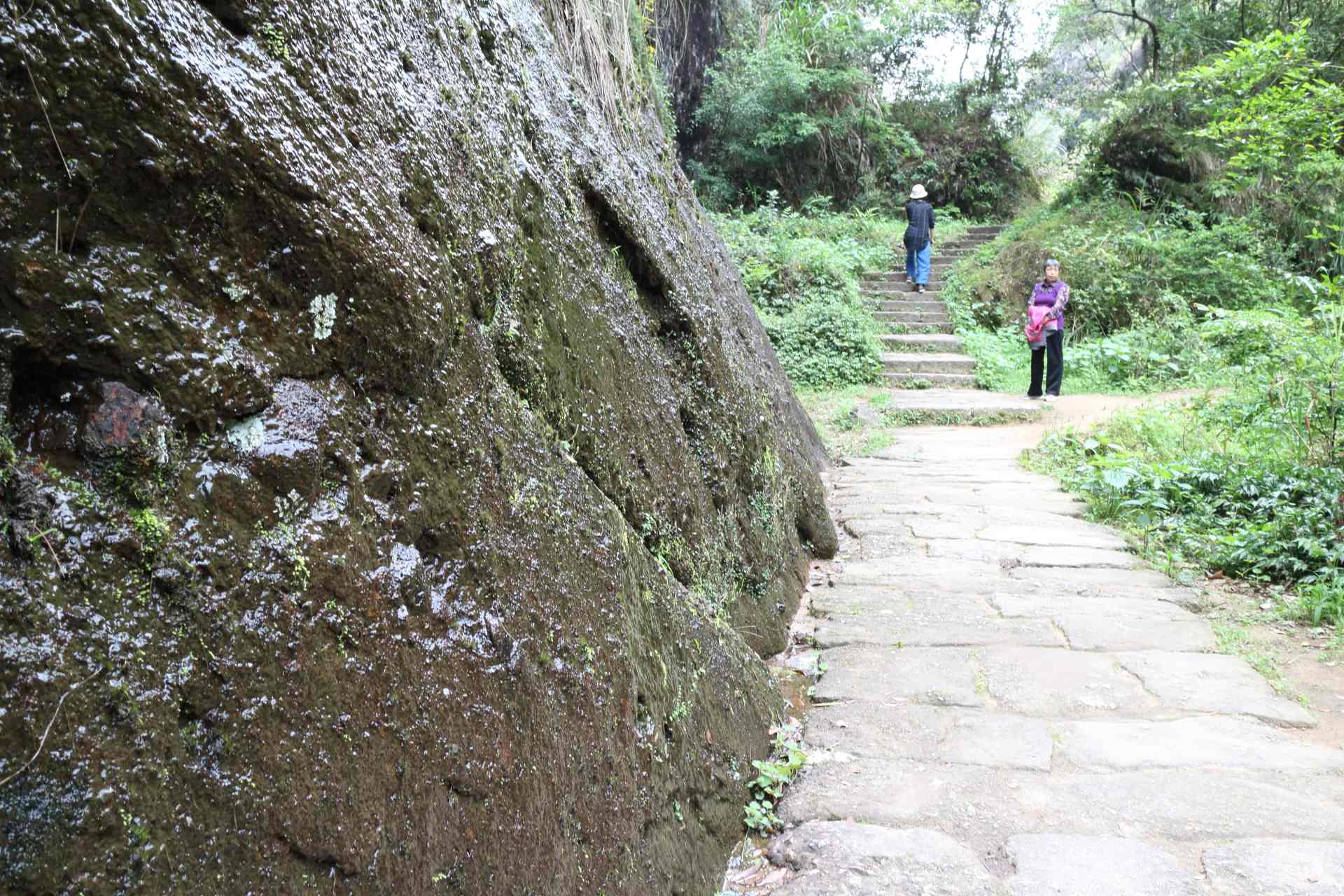Xianrenyan Gao Cong Shui Xian
Oolong teas from Wuyishan are renowned for the exquisite fragrance imbued into them through a long and slow roasting process and their yan yun—cliff charm or rock rhyme, an abstract quality found in good Yan Cha, but also a sense of minerality on the tongue that reminds one of the rocky cliffs these teas are cultivated on. These qualities come to the forefront in this Shui Xian, harvested from tall, unpruned bushes in Xianrenyan. Its leaves are wound into long, thick strands that exude a pleasant aroma of flowers with hints of chocolate. Upon first contact with water, a strong and full-bodied fragrance fills the room and accompanies the entire drinking experience from start to finish. The clear and vibrant orange tea soup portends the marks of a great Yan Cha with a lighter roast. Its taste is bright and floral, combining with notes of citrus to evoke an impression of Bergamot, accompanied by a gentle woody backbone and hints of spice. The long-lasting aftertaste with a layer of minerality becomes more prominent with every steep. This tea feels light in the mouth—almost ethereal, but nonetheless leaves the one drinking with a sense of fullness.
Enjoy this tea if you want a premium Oolong that feels light, but has plenty of strength. A tea with an abundance of character that still checks all the boxes and keeps them balanced.
Written by Sigi
Shui Xian Categories
Most producers in Wuyishan distinguish between Shui Xian and Lao Cong Shui Xian, the latter designating older, taller plants. Master Tu, the curator of some of our most outstanding Yan Cha, categorizes the Shui Xian plant into three distinct groups.
1. Definition by Tree Age
- Shui Xian: Typically under 30 years old, classified as young tea trees. Regularly pruned for mechanized harvesting, with a bush-like form.
- Gao Cong Shui Xian: Generally 30 to 60 years old, considered middle-aged tea trees. Unpruned, naturally growing to over 2 to 3 meters, requiring manual harvesting.
- Lao Cong Shui Xian: Over 60 years old, classified as old tea trees. Naturally grown without pruning, can exceed 5 meters in height, harvested manually using ladders.
2. Tree Morphology
- Shui Xian: Relatively short plants, bush-like shape, thinner leaves, weaker branches.
- Gao Cong Shui Xian: Taller trees with thick trunks, bark covered in moss, lichens or vines. Foliage is tall yet sparse, displaying a naturally untended state.
- Lao Cong Shui Xian: Thick trunks with bark covered in moss, lichens or vines. Foliage tall yet sparse, showing a naturally untended state.
Shui Xian
Gao Cong Shui Xian
Lao Cong Shui Xian
- ORIGIN: Xianrenyan, Wuyishan, Nanping, Fujian, China
- MEANING: Tall bush water sprite (gao cong shui xian)
- CULTIVAR: Shui Xian
- HARVEST TIME: Spring 2024
- TASTE: Bergamot, agarwood, cardamom
- Quantity: 6g / 500ml
- Water temperature: 90°C
- Infusion time: 5 min
- Quantity: 3g / 100ml
- Water temperature: 90°C
- 4 infusions: 45, 60, 60, 90 sec
For best results in gongfu cha, brew in the traditional gaiwan or in a Yixing teapot. Too high water temperature would burn the leaves, resulting in bitter taste.
Additional Information
Authentic Wuyi Yan Cha is produced in the Wuyi Mount region, a UNESCO natural heritage site. The dramatic gorges of the Nine Bend River are surrounded by a largely intact subtropical forest and smooth cliffs of black-brownish rocks. The tea plants grow in narrow valleys, next to the cliffs, in a mineral-rich soil.
Today Wuyi Yan Cha is one of the most valued teas in China. Because it has become a status symbol, many wealthy Chinese are willing to pay a fortune for it without even knowing how a proper Wuyi Yan Cha should taste. The result has been prices inflating to unjustified level and quality often sacrificed for quantity.
Unique to the Wuyi Yan Cha is a mineral savor coming from the soil and the surrounding cliffs. Being the oolong with the highest fire finish, fresh Yan Cha may as a result be strong and pungent. Sharpness and too-prominent astringency subside upon ageing. Premium high-fire Yan Cha tastes better after a few years of storage. Use a Yixing teapot to soften the tea, should it be too astringent for your palate.
The overall tasting profile is rich, complex, and deep. Depending on cultivar and environment, the mineral-roasted flavor is refined by floral, fruity, nutty or woody accents.










